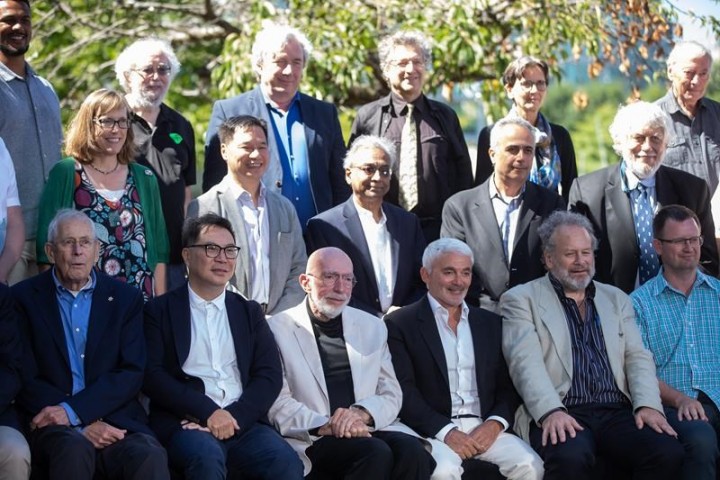VANCOUVER — Some of the world’s brightest minds are gathering at a hotel conference centre in Vancouver this week to try to solve a question that has baffled physicists for decades.
The two pillars of modern physics — the theories of quantum mechanics and general relativity — have been used respectively to describe how matter behaves, as well as space, time and gravity.
The problem is that the theories don’t appear to be compatible, said Peter Galison, a professor in history of science and physics at Harvard University.
“These theories can’t just harmoniously live in splendid isolation, one from the other. We know our account of the world is inadequate until we figure out how to make them play nicely together,” he said in an interview after giving a talk on how black holes fit into the equation.
Galison is among several leading thinkers who arrived at the Quantum Gravity Conference for the launch a new global research collaborative known as the Quantum Gravity Institute in Vancouver.
While speakers at the conference are primarily scientists, including Nobel laureates Jim Peebles, Sir Roger Penrose and Kip Thorne, those behind the institute come from less likely fields.
The Quantum Gravity Society represents a group of business, technology and community leaders. Founding members include Frank Giustra of Fiore Group, Terry Hui of Concord Pacific, Paul Lee and Moe Kermani of Vanedge Capital and Markus Frind of Frind Estate Winery. They are joined by physicists Penrose, Abhay Ashtekar, Philip Stamp, Bill Unruh and Birgitta Whaley.
During a panel discussion, Lee said he’s been asked several times why Vancouver would host such an event or institute.
“Why Vancouver? Because we can,” Lee said.
Hui, who studied physics as part of his undergraduate degree, said organizing the conference and launching the institute felt like fulfilling a childhood dream.
“I left the field to pursue other things, you know,” he said in an interview.
“How do I put this?” he said, before likening it to being a guy who never made the high school hockey team getting to hang out in the Canucks’ locker room.
Hui said he wanted to help and saw his role as philanthropic, adding he believed it would benefit Vancouver economically.
As a non-local and the founder of the Black Hole Initiative at Harvard, Galison said he’s happy to see more interdisciplinary support for exploring some of the biggest questions in science.
He called the conference an interesting event for bringing together people in technology and venture capitalism with scientists from varied fields. The launch of the institute is also meaningful, he said.
“It’s also a kickoff event for something much bigger and longer-lasting.”
As for the central question of the conference, Galison said it’s an opportunity to explore where the theories overlap and where they don’t from different angles.
“One place they intersect is clearly at the beginning of the universe, early cosmology, because when energy is incredibly compressed, when you have enormous energy densities, you’re at the limit where the bending of space and time creates so much energy that quantum effects come into play,” he said.
The theory of quantum mechanics, introduced in the 1920s, entered a world already shaken by Albert Einstein’s theory of relativity, which inspired responses not just from scientists but from poets and philosophers, he said.
“That these things are not compatible is really unnerving,” Galison said.
Cracking the code for why isn’t something that will happen in a moment, a week or a year, he said.
“There’s a tremendous amount of work,” he said. “It’s more like building a cathedral than throwing up a bicycle shed.”
This report by The Canadian Press was first published Aug. 17, 2022.
Amy Smart, The Canadian Press
